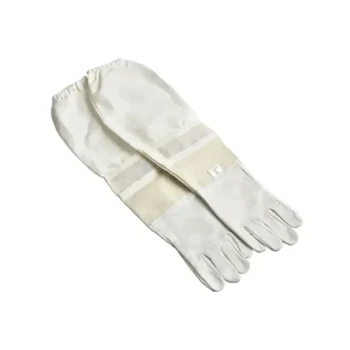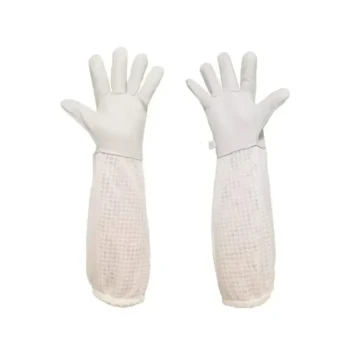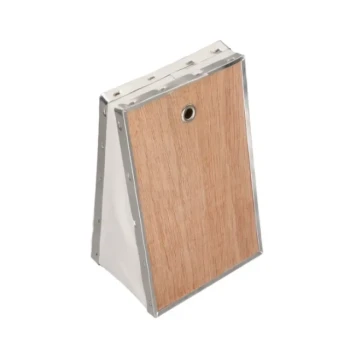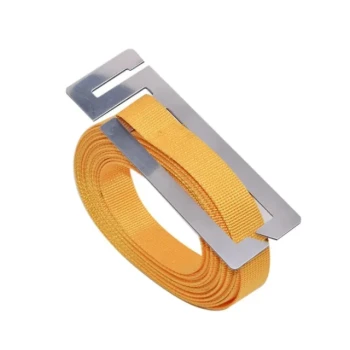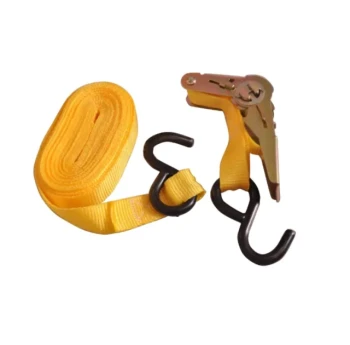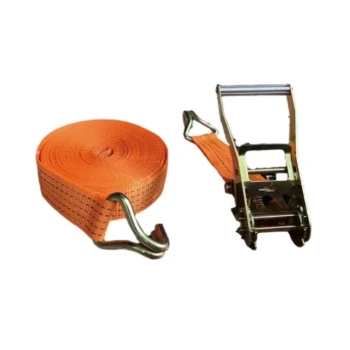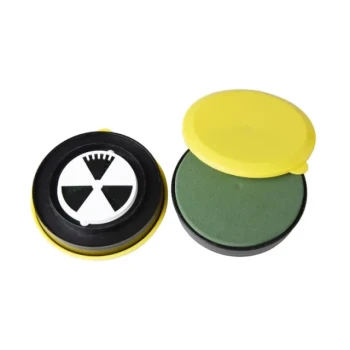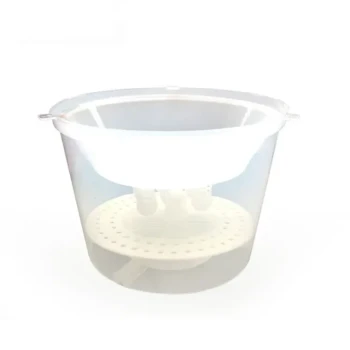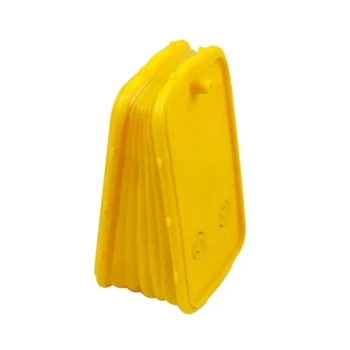For most beekeepers, especially beginners, the answer is an unequivocal yes. You should wear gloves to protect your hands from painful stings and to build the confidence needed for calm hive inspections. Gloves provide a critical barrier, allowing you to focus on the health of your colony without the distraction or fear of being stung.
The decision to wear gloves is not simply about preventing stings; it's about managing the trade-off between physical protection and tactile sensitivity. The right choice is the one that allows you to handle your bees with the greatest calm and precision.
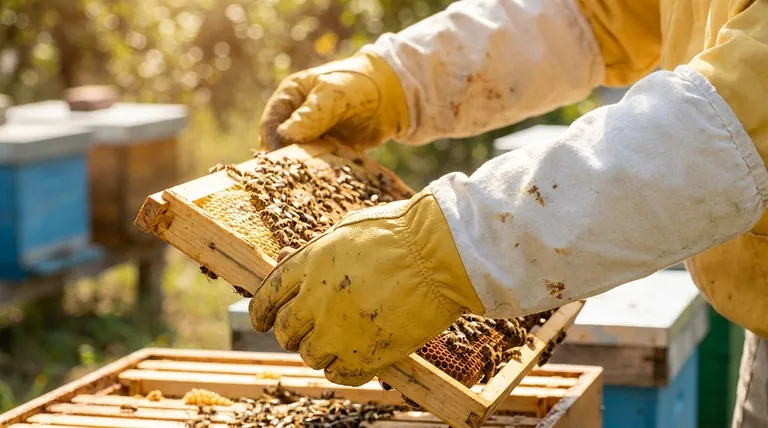
The Primary Case for Wearing Gloves
For the vast majority of beekeeping work, gloves are a non-negotiable piece of safety equipment. The benefits go beyond simple sting prevention.
Essential Sting Protection
Your hands are the tools you use most directly when interacting with a hive. A sting on the hand, and especially on a finger, is not only more painful but can also cause significant swelling that limits your dexterity for days.
Proper beekeeping gloves are long, covering the wrist and securing over your suit's sleeves. This design prevents bees from crawling into a gap and gaining access to your arms.
Building Confidence and Calm
For a beginning beekeeper, the fear of being stung is a major source of anxiety. This nervousness can lead to jerky, sudden movements, which in turn agitate the bees and make stings more likely.
Wearing gloves removes this primary fear, allowing you to move with a calm, deliberate confidence. This is essential for learning to work with your bees effectively and gently.
Maintaining Hygiene
Working in a beehive is a sticky business. Gloves provide a barrier not just from stings, but also from honey and propolis, a resinous "bee glue" that can be difficult to clean from your skin.
The Argument Against Gloves: A Matter of Experience
While beginners should always wear gloves, you will notice some highly experienced beekeepers working with their bare hands. This is a deliberate choice made possible only by years of practice.
Enhanced Dexterity and Precision
No glove can perfectly replicate the sensitivity of your fingertips. Working gloveless allows for maximum dexterity, which can be useful for delicate tasks like marking a queen or handling a single frame without jarring the bees.
A More "Natural" Feel
Barehanded beekeepers often report having a better "feel" for the hive. This tactile feedback allows them to handle bees more gently, reducing the chance of accidentally crushing one—an act that releases an alarm pheromone and can trigger a defensive response from the colony.
The Role of Confidence
Ultimately, the decision to go gloveless comes from a deep level of comfort and an expert ability to read the hive's temperament. These beekeepers have learned to trust both their own calm movements and the bees' behavior.
Understanding the Trade-offs: Glove Materials
Choosing a glove is a balance between protection and dexterity. The material is the single most important factor in this equation.
Thick Leather Gloves
These offer the absolute highest level of sting protection. However, they are also the most cumbersome, significantly reducing your dexterity and feel. They are a solid choice for beginners who prioritize safety above all else.
Goatskin Gloves
Goatskin is thinner and far more flexible than traditional cow leather. It represents an excellent middle ground, providing very good sting protection while allowing for significantly better dexterity. Many beekeepers consider this the ideal material.
Nitrile Exam Gloves
For those seeking maximum dexterity, nitrile gloves are a surprisingly effective option. While thin, a single or double layer is often enough to prevent stings. They keep your hands clean and provide a "barehanded" feel, but offer the least physical protection if a bee is determined to sting.
Making the Right Choice for Your Goal
Your choice of hand protection should align with your experience level and immediate goal.
- If your primary focus is safety and confidence as a new beekeeper: Always wear thick leather or goatskin gloves to learn the fundamentals without fear.
- If your primary focus is improving dexterity for more delicate work: Switch from thick leather to more flexible goatskin gloves, or try a double layer of nitrile gloves.
- If you are an expert seeking maximum sensitivity: You may choose to work gloveless, but only with exceptionally calm hives and with the full understanding of the risks involved.
The best protective equipment is that which empowers you to be the calmest and most effective caretaker for your bees.
Summary Table:
| Situation | Recommended Hand Protection | Key Benefit |
|---|---|---|
| Beginner / Safety Focused | Thick Leather or Goatskin Gloves | Maximum sting protection and confidence building |
| Intermediate / Dexterity Focused | Flexible Goatskin or Nitrile Gloves | Good protection with improved dexterity |
| Expert / Maximum Sensitivity | Gloveless (with calm hives) | Ultimate tactile feel and precision |
Equip Your Apiary with Confidence
As a commercial beekeeper or distributor, your success depends on efficient, safe hive management. The right protective gear is not just a precaution—it's an investment in your productivity and the well-being of your colonies.
HONESTBEE supplies professional-grade beekeeping gloves and equipment designed for the demands of commercial operations. We offer durable goatskin gloves for the perfect balance of protection and dexterity, and nitrile options for delicate tasks.
Let us help you optimize your workflow and protect your most valuable asset—your beekeepers.
Contact HONESTBEE today to discuss wholesale pricing on gloves and other essential apiary supplies.
Visual Guide
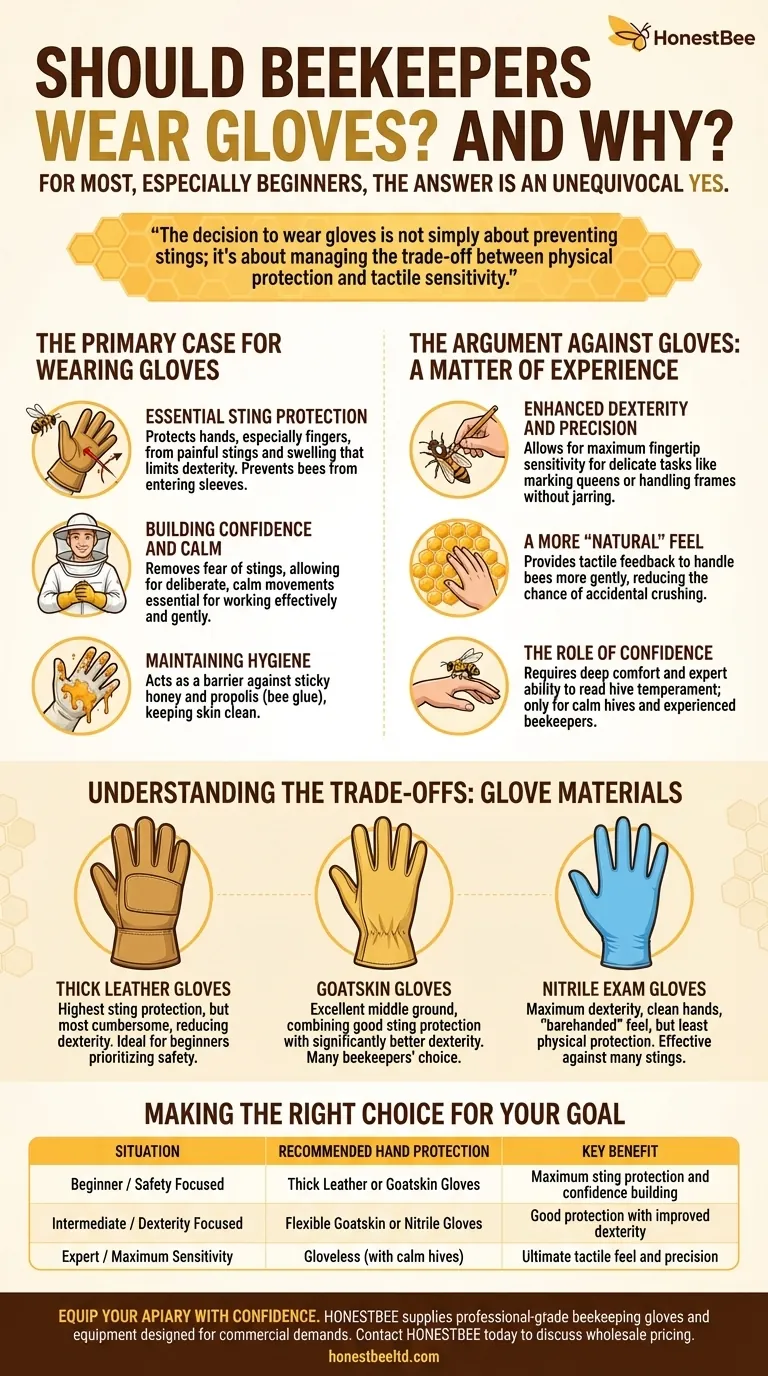
Related Products
- Beekeeping Gloves Goatskin Leather with Long Cotton Sleeve for Beekeepers
- Goatskin Leather Beekeeper Gloves with Vent Long Sleeve for Beekeeping Honey Bee Sting Proof Protection
- Goat Skin Leather Bee Sting Proof Beekeeping Gloves with Canvas Sleeve
- Premium Ventilated Goatskin Beekeeping Gloves with Full 3-Layer Mesh Sleeve
- Professional Galvanized Hive Strap with Secure Locking Buckle for Beekeeping
People Also Ask
- How should beekeeping gloves be worn to prevent bees from getting inside a suit? Master the Gap-Free Seal
- What are the advantages of using latex over leather gloves for bee aggression testing? Improve Data Accuracy Today
- How can you remove propolis from beekeeping gloves? A Guide to Effective Cleaning
- What material options are available for beekeeping gloves? Choosing Protection vs. Dexterity
- Why are thin but durable nitrile gloves superior for handling bees? Boost Your Hive Precision and Colony Calmness
- What is the role of gloves in beekeeping, especially for beginners? Build Confidence & Safety
- What are the benefits of using disposable nitrile gloves for beekeeping? Elevate Hive Hygiene and Precision
- What are the characteristics of leather gloves for beekeeping? Choose the Best Protection for Your Apiary

